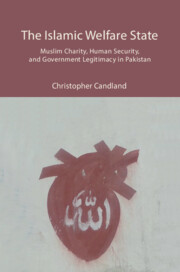Book contents
- Frontmatter
- Dedication
- Contents
- List of Illustrations
- Preface
- Note on Translations and Transliterations
- List of Abbreviations
- Part 1 Introduction
- Part 2 Piety and Public Goods
- Part 3 Pakistan
- Part 4 Charities
- Part 5 Religion, State, and Public Goods
- Afterword
- Acknowledgments
- Appendix: Charities Studied
- Glossary
- References
- Index
7 - Traditional Islamic Charities
Published online by Cambridge University Press: 30 April 2024
- Frontmatter
- Dedication
- Contents
- List of Illustrations
- Preface
- Note on Translations and Transliterations
- List of Abbreviations
- Part 1 Introduction
- Part 2 Piety and Public Goods
- Part 3 Pakistan
- Part 4 Charities
- Part 5 Religion, State, and Public Goods
- Afterword
- Acknowledgments
- Appendix: Charities Studied
- Glossary
- References
- Index
Summary
We are the real NGOs. We don't take. We give.
—Arshad AhmadEvery Muslim is obligated to be a philanthropist.
—Aijaz AhmedChapter 3 presented the major theological conceptualizations of the faithful's obligation to provide welfare in a Muslim society. These include such institutions and practices as awqaf (trusts), zakat (annual obligatory charity), and ushr (obligatory charity from irrigated land), khams (obligatory Shia donation to one's Imam), sadqah (donation to the poor or those working ‘in the way of God’), infaq (spending to please God), and qurbani (donated meat of sacrificed animals). We examine, over the next four chapters, the specific practices of Islamic social welfare in Pakistan.
Providing zakat is one of the five pillars of Islam and the one that many Muslims take most seriously; the invocation to pay zakat is made thirty-two times in the Quran, although it begins to appear only in the second year of Muslim life in Madinah. The Prophet Muhammad referred to zakat as the ‘treasure of Islam.’ Without payment of zakat, it has been said, prayers are not meaningful. The recommendation that one should spend in ways that please God (infaq fi sabilillah) is made more than 150 times in the Quran. Infaq receives more emphasis in the Quran than praying or fasting.
Pakistan is home to practices—including pilgrimages to and worship at dargah (shrines) and provision of langar (community kitchens)—that are common to Southern Asia. Pilgrimage to and worship at a dargah is common to Asian Islam, from Iran, where it is known as a mazar, to Indonesia, where it is known as a makam. Bangladesh and India are also home to madaris (Islamic seminaries) and Indonesia to pesantren (Islamic seminaries). And these practices are not unique to Islam. The langar is a central feature of any Sikh gurudwara. Welfare practices based at religious institutions are central to social life throughout Pakistan.
Khairat is in the weave of Pakistan. Like Pakistan and its population, the diversity of charitable activity itself is astonishing. Thousands of associations— of all varieties—are providing welfare services annually to tens of millions of people. Most of these welfare associations are private, operating without support from government, and independent, operating without political affiliation.
- Type
- Chapter
- Information
- The Islamic Welfare StateMuslim Charity, Human Security, and Government Legitimacy in Pakistan, pp. 126 - 141Publisher: Cambridge University PressPrint publication year: 2024

